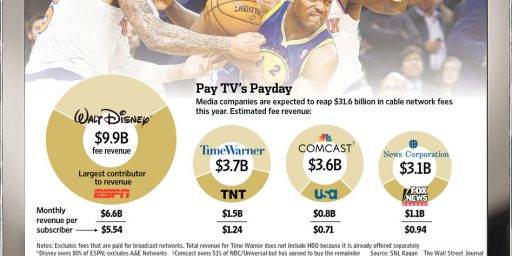THE END OF TELEVISION AS WE KNOW IT
Shorten TV Season? End Sweeps? Rules Shifting at Networks
Network television — battered by years of audience defections to cable channels and fearing the devastation that personal video recording machines like TiVo could wreak on advertising, its only revenue source — is beginning to embrace tactics considered heretical just a few years ago as it struggles to keep viewers tuned in and attentive.
Network executives now say they are moving toward abolishing the traditional television season, that 35-week period from mid-September to mid-May that confers bragging rights on the network with the highest ratings. In a plan designed to reduce or do away with repeats, new shows will increasingly be introduced year-round rather than in the typical mid-September and mid season slots.
Instead of the typical 22-episode seasons, the networks are also planning more short-term programs, including reality shows and even scripted dramas. And they will be offered in bursts of 8 or 10 or 13 episodes in consecutive weeks, like “Stephen King’s Kingdom Hospital” next month on ABC. (The lone holdout so far is CBS, which is committed to a traditional structure of 22 or so episodes in a season, followed by a summer of mostly repeats.)
Many network executives are even considering the elimination of the television-season subsections known as sweep months, the three-times-a-season special ratings periods filled with stunt programming.
“If you play by the old rules, you will be left behind,” said Jeff Zucker, the president of NBC Entertainment.
The threats facing the networks are not new. Cable has been eating into the networks’ share of the audience for years, surpassing the combined viewership of CBS, NBC, ABC, Fox, The WB and UPN last year for the first time. Repeats of all but a few shows have lost their allure. And the networks have not had a breakout comedy in six years.
Interesting. Of course, the networks have been moving in this direction for a while. NBC, in particular, lost my interest when they started showing ER in short bursts followed by several weeks of in-season repeats.
TiVo and the proliferation of cable and satellite channels have certainly affected my habits–much like the remote control changed those of a previous generation. I very seldom watch two shows in a row on the same network these days; indeed, I often forget which network a particular show is on. And I almost never watch a pre-scripted program (that is, anything other than sports and breaking news) live anymore.




